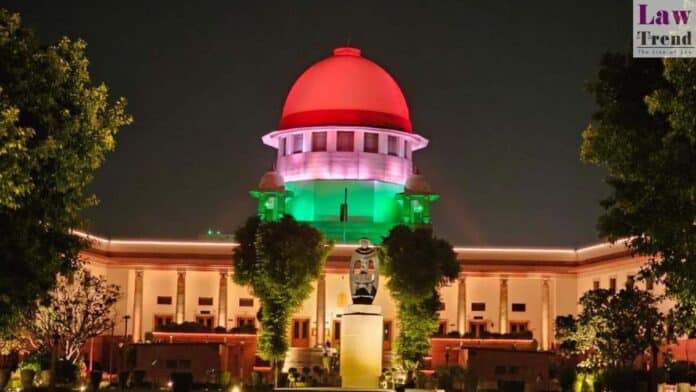The Kerala government has moved the Supreme Court claiming that Governor Arif Mohammed Khan was delaying in giving assent to bills passed by the state assembly which was “defeating the rights of the people”.
Earlier, the governments of Tamil Nadu and Punjab had moved the apex court alleging delay by the state governors in giving assent to bills passed by the respective state assemblies.
The Kerala government has claimed inaction on the part of the Governor of the State in relation to eight bills passed by the state legislature and said many of the bills involve immense public interest, and provide for welfare measures which would stand deprived and denied to the people of the State to the extent of the delay.
“The petitioner State of Kerala – in fulfilment of its parens patriae obligation to its people, seeks appropriate orders from this Honourable Court in relation to the inaction on the part of the Governor of the State in relation to as many as eight bills passed by the state legislature and presented to the governor for his assent under Article 200 of the Constitution.
“Of these, three bills have remained pending with the Governor for more than two years, and three more in excess of a full year. The conduct of the Governor, as would presently be demonstrated, threatens to defeat and subvert the very fundamentals and basic foundations of our Constitution, including the rule of law and democratic good governance, apart from defeating the rights of the people of the State to the welfare measures sought to be implemented through the Bills,” the plea filed by the Kerala government stated.
The plea said Article 200 of the Constitution casts a solemn duty on the Governor of a State by requiring that on the presentation to him of any Bill passed by the State Legislature, he “shall declare either that he assents to the Bill or that he withholds assent therefrom or that he reserves the Bill for the consideration of the President”.
The state government said grave injustice is being done to the people of the State, as also to its representative democratic institutions by the Governor, by keeping bills pending for long periods of time, including three bills for longer than two years.
“The Governor appears to be of the view that granting assent or otherwise dealing with bills is a matter entrusted to him in his absolute discretion, to decide whenever he pleases. This is a complete subversion of the Constitution,” it submitted.
The plea said the conduct of the Governor in keeping the bills pending for long and indefinite periods of time is also manifestly arbitrary and violates Article 14 of the Constitution.
Additionally, it also defeats the rights of the people of the State of Kerala under Article 21 of the Constitution, by denying them the benefits of welfare legislation enacted by the State Assembly, it said.
Tamil Nadu and Punjab had earlier moved the Supreme Court claiming inaction by their respective governors on the issue of giving assent to bills.
Also Read
Tamil Nadu Governor R N Ravi and his Punjab counterpart Banwarilal Purohit have a running feud with the DMK and Aam Aadmi Party (AAP) governments led by M K Stalin and Bhagwant Mann.
The Tamil Nadu government urged the top court to intervene, alleging that a constitutional authority was consistently acting in an unconstitutional manner impeding and obstructing” the functioning of the state government for extraneous reasons.
Punjab Governor Purohit has granted assent to 22 of the 27 Bills passed by the state assembly.
Recently, three money bills, which were proposed to be presented by the AAP government in a special session of the state assembly, were sent to the governor for prior approval but gubernatorial consent was withheld.
This led to the adjournment of the special assembly session and Chief Minister Mann made a statement that the state government will move the top court.







